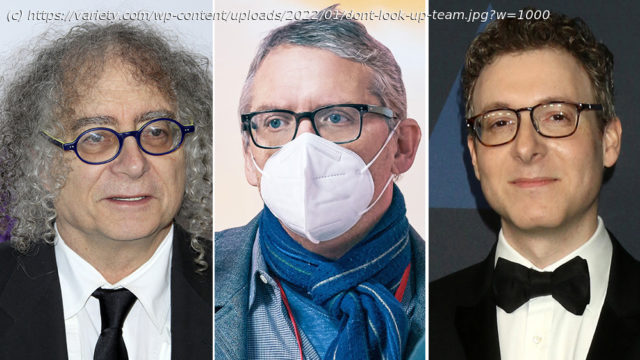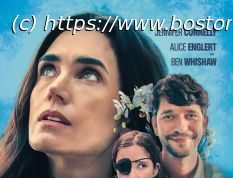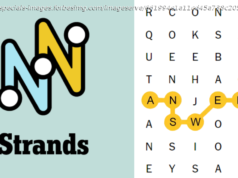The filmmaker, his editor and composer say the divided reactions over the film reflects what’s going on in the world — and in the movie.
“Don’t Look Up” has hit a nerve in a way that’s rare for films to do. That’s partly because it addresses an urgent, hot-button topic — climate change — with a film that’s partly a cry for help, partly a black comedy. The movie, written and directed by Adam McKay, with a story by David Sirota, boasts a starry cast, including Jennifer Lawrence, Leonardo DiCaprio, Meryl Streep and Cate Blanchett. People love it or hate it, with no middle ground, as McKay says. Risk-taking is rare for a film these days and “Don’t Look Up” swings for the fences; it could have gone wrong in so many ways, but even detractors have to admit it’s interesting: It’s epic, covering a wide range of geographical and emotional territory, with so many characters and subtle shifts in tone. And it seems to be a shoo-in for multiple Oscar nominations. McKay, editor Hank Corwin and composer Nicholas Britell had worked together on “The Big Short” and “Vice” before this film. The trio sat with Variety to discuss their evolving collaborative process, the quest to find the right tone and the intense reactions to the Netflix film. Adam McKay: We’re living in incredibly strange, ahistoric, teetering, seismic times. One tone doesn’t cover what it feels to be alive now. I write scripts that blend absurdist comedy with dark tragedy and drama. And then I force these two guys to make sense of it! Nicholas Britell: Hank and I got involved early, before shooting began. Adam asked me to write a piece of score that he could play for the actors on set during the telescope sequence, to give a feel of the movie. Hank Corwin: The tone of the film kept shifting; even the temp music I got from Nick would become irrelevant after a point and we would start over. It was a constantly evolving methodology. Britell: Years ago, Hank said it’s like we’re playing jazz together. We would work together in the editing room. As they’re figuring out the cut, I’m experimenting with different ideas. My early score piece that Hank had, “Overture to Logic and Knowledge,” is not at the beginning of the film; it actually wound up at the dinner table. McKay: I trust them both so much. We were all on the same page trying to address the bizarre inaction to the climate crisis. Then the pandemic hit. Much of what happened was exactly in the script, and much was more preposterous than the script. I had to do rewrites. That played out in the editing and the scorem, as these guys masterfully tried to blend this all together — and had to take into account how much of the movie was like what we’re living through. Corwin: Sometimes we feel on a high wire trying to ascertain the tone. But Adam engenders confidence.
Home
United States
USA — Cinema Adam McKay, 'Don't Look Up' Team Discuss Taking Tonal Risks and the...






